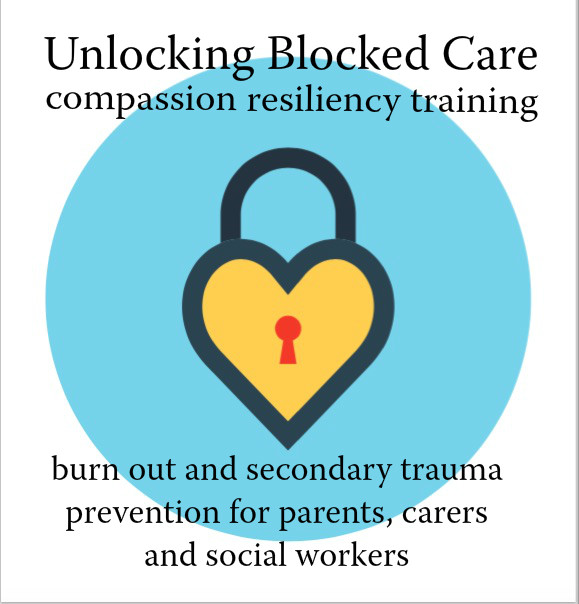From Caregiver Stress to Compassion Resiliency
“the expectation that we can be immersed in suffering and loss daily and not be touched by it is as unrealistic as expecting to be able to walk through water without getting wet”– naomi rachel ramen
Caring for children who have challenging behaviours – perhaps as a result of disability, or trauma or attachment wounds – is difficult, and it can hurt.
Exposed to ongoing distress, the risk of compassion fatigue and traumatic stress is high, which not only has a serious impact on our vitality, health and relationships, but also threatens our personal sense of identity, safety, dignity, and self-efficacy.
It’s not surprising, and it’s certainly not your fault.
Even the strongest, smartest and most skilful among us, can end up feeling disempowered, deskilled, and defeated.
We all have a deep wellspring of compassion within us, but it is extremely vulnerable to stress, which can eventually lead to Blocked Care.
This desire to shut down or shut out (or even act out) is a natural, defensive response our body takes to protect and care for itself, especially when we have been giving everything we have to give, with little guarantee of receiving anything in return.
The good news is, it is possible to grow our compassion resiliency, so we can extend a little more care, peace and ease towards ourselves and those we serve, even when times are tough.
But we can no longer rely on the usual well-intentioned advice we receive about self-care and rest. Breaks, bubble baths and three deep breaths simply won’t cut it on their own, when there is so much at stake.
When it comes to blocked care, some resources are more powerful for prevention and recovery than others, and learning them helps us step into the extraordinary resilience required of us over the long-term.
The SomaSmart Resource Model is designed to connect you to a deep inner resilience, power and presence, that can be brought to bear in difficult situations.
It teaches nourishing practices that restore your strength, hope and purpose, and act as antidotes to the trauma orientation of contraction, hypervigilence, powerlessness and shame.
It teaches you about your personal stress response, how to expand your distress tolerance, and how to decompress at a nervous system level, so you can minimise your toxic stress load.
It shows you how to shift from reactive to resourceful states when in relationship; so rather than defaulting to old patterns under stress, you respond to the struggles of caregiving with greater intention, choice and self-efficacy.
As you are already all too aware, it simply isn’t possible to witness, and be present with so much distress, without being impacted by it….
But that doesn’t mean you have to suffer alongside it, too.
Introductory Seminars and Live trainings will be available to book from January 2017, and an online course is currently being developed, so please sign up so you can keep in touch with our news and events. You can read more about the model, here

Recent Comments